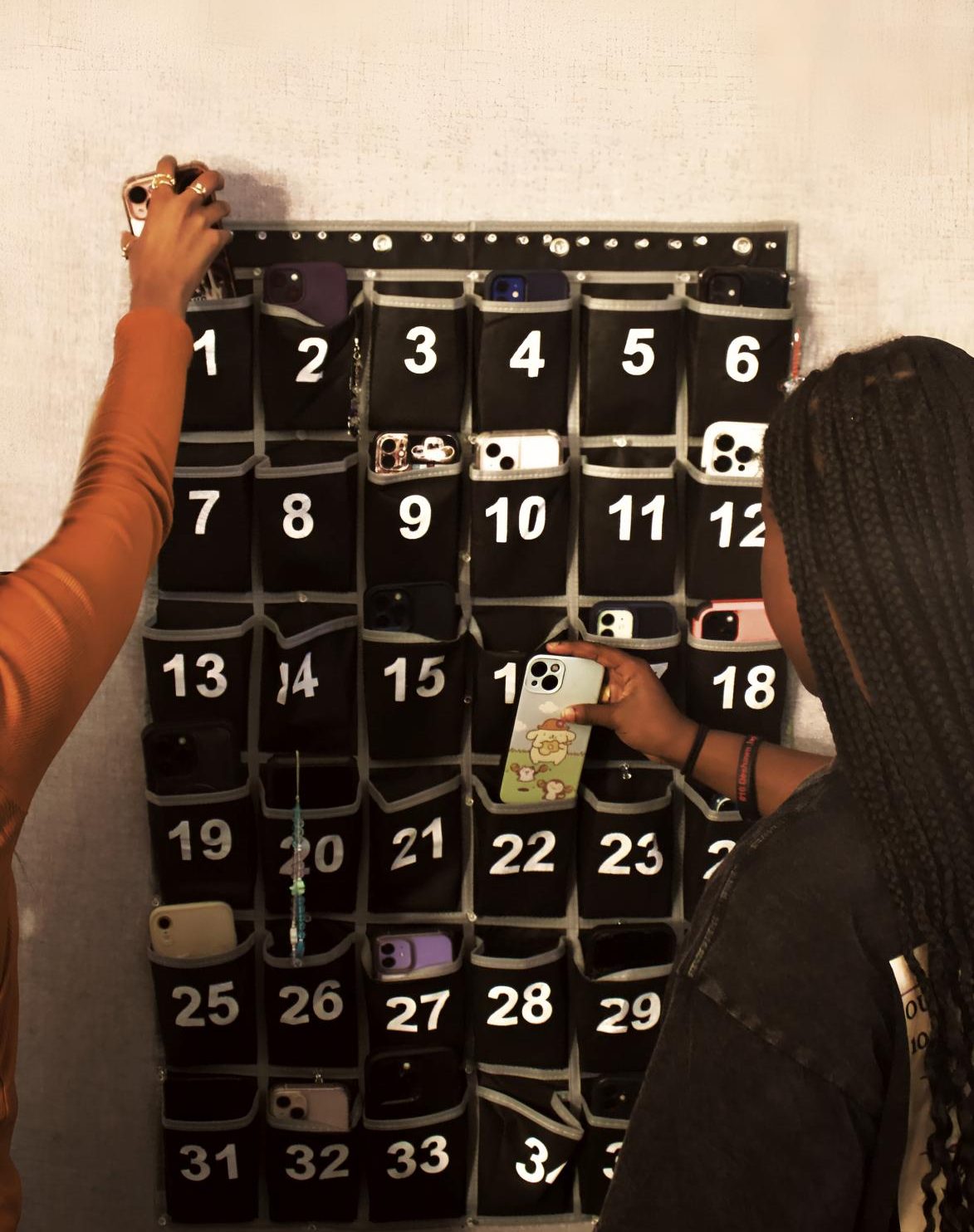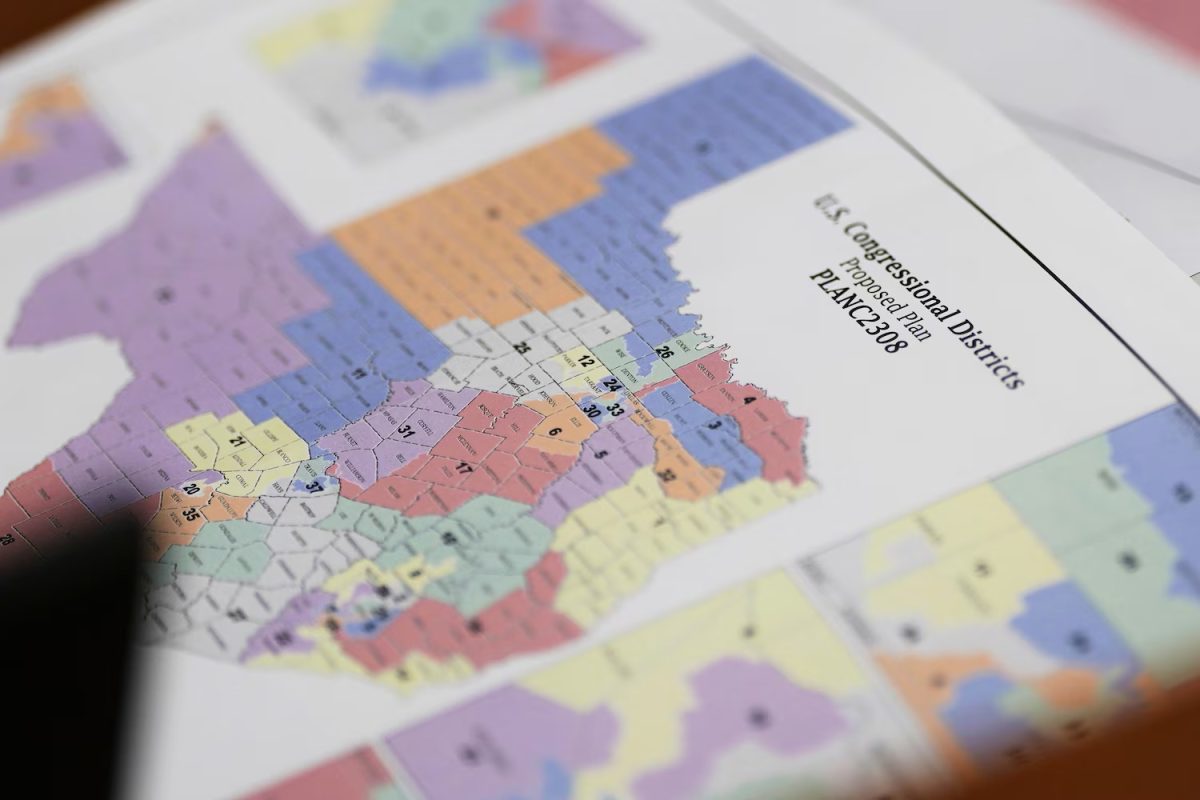This year, Law Magnet introduced a new rule that’s been making waves: a mandatory phone confiscation system (better known as phone jails) . If you’ve been in one of the Law classrooms lately, you’ve probably noticed a sheet of fabric with numbered pouches where students are supposed to store their phones during class. The rule has sparked various reactions and brings up some broader issues about phone use in schools.
The push to limit phone use isn’t just a local trend. Over the past two years, state lawmakers have been working to address the addictive nature of our mobile devices as part of a larger effort to tackle youth mental health issues. Social media primarily has opened the floodgates to harmful by-products like cyberbullying. We all have an unhealthy reliance on our phones. While websites like Instagram and Tik-tok are blocked on most district networks, many states are now moving beyond social media and implementing bans on cell phones in schools. For example, Virginia recently took action when Governor Glenn Youngkin signed an executive order directing the state’s Department of Education to draft guidelines for cellphone use. This initiative aims to create a more focused learning environment by restricting phone access during instructional time.
The rationale behind these bans is clear: the hope is to reduce distractions and improve student engagement in the classroom and mental health. The Pew Research Center found that while 44% of teens feel anxious without their phones, a significant 72% feel peaceful when disconnected. And according to research by Common Sense, smartphones are widely used in schools for social media, YouTube, and games, leading to inconsistent enforcement of existing phone policies. The new pouch system is seen as a way to address this issue more effectively.
However, some argue that blanket bans on phones might overlook the positive aspects of technology in learning. Moreover, while phones help students pursue hobbies and interests, only 30% believe they enhance social skills. UNESCO (The United Nations Educational, Scientific and Cultural Organization) has also weighed in, suggesting that smartphones should be banned in schools unless used for academic purposes. This viewpoint supports the idea that while phones can be distracting, they also have potential benefits if used correctly in an educational setting.
In our classrooms, reactions to the phone pouch system have been mixed. Some students appreciate the rule, noting that being without their phones helps them stay more focused. Others feel it’s too restrictive and believe it undermines their autonomy. Teachers are also split; a portion find the rule beneficial for reducing distractions, while others worry it might hinder the use of technology that can enhance learning.
As this new rule takes effect, it will be interesting to see how it affects classroom dynamics and whether it leads to the intended improvements in focus and engagement. The debate continues, reflecting the broader conversation about how best to balance technology use and education in today’s schools.






